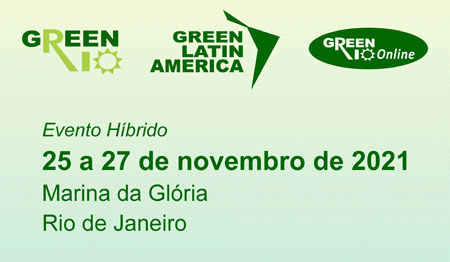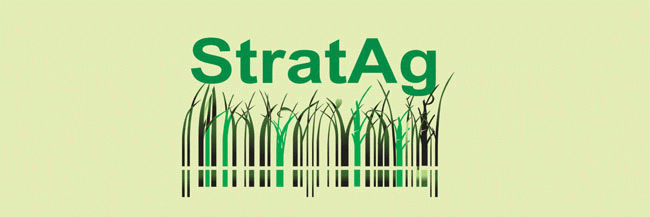
Save the date: 24-26 September 2012
The Sustainable Cosmetics Summit will be held at:
Intercontinental São Paulo
Alameda Santos 1123 São Paulo SP – 01419-001
London – As the dust settles on the Earth Summit (Rio +20), there is a growing realization that the private sector may have to take the lead in certain aspects of sustainable development, such as ethical sourcing and responsible consumption.
A major critique of the summit is that the finished document (‘Future We Want’) is largely a list of aspirations, with very few of the outcomes legally binding. There is a concern that every country will do how much – or how little – they like to encourage sustainable development. In such a scenario, it looks as if the onus is falling on the private sector to set industry benchmarks and standards for sustainability.
As will be shown at the Sustainable Cosmetics Summit (www.sustainablecosmeticssummit.com/Lamerica/), such developments are already taking place in the cosmetics industry. Many cosmetic and ingredient firms are leading the way in ethical sourcing. Latin America – the most biologically diverse region on the planet – is becoming a hotbed of sustainable sourcing projects that cover various environmental and social aspects.
Natura Brasil, one of the largest cosmetic companies in the region, is involved in a number of sustainable sourcing projects that promote biodiversity whilst catering to the needs of local communities. The company also leads in other areas of sustainability, such as tackling climate change; it has been carbon neutral since 2007. Recognition came this year when it was named as the second most sustainable corporation in the world.
As well as undertaking ethical sourcing projects, the second leading Brazilian cosmetic firm Grupo Boticario has set up a foundation for conservation projects. The Boticário Group Foundation protects over 11,000 hectares of Atlantic Rainforest and Cerrado, two of the most endangered biomes in Brazil. The foundation has donated over USD 10 million in nature reserve programs, enabling the discovery of 37 new species of plants and animals.
The rich biodiversity of Latin America is also attracting large multinationals. Cosmetic companies like L’Oreal, Unilever and Johnson & Johnson have set up R&D centers in the region. Ingredient companies – including Symrise, Givaudan, and Laboratories Expanscience – are also involved in ethical sourcing projects. Such companies are looking for novel ingredients in the vast range of plant species in the region.
In the absence of national regulations for ethical sourcing and biodiversity – or lack of enforcement – many companies are signing up to charters. The Union for Ethical BioTrade is the most popular; although the organization is based in Europe, half its trading members are from Latin America. Some members, like Beraca and Lab Favre, have been involved in preventing environmental degradation and addressing social inequality for decades. The Colombian company Lab Favre undertakes sustainable wild collection of raw materials in the Andes and Amazon, whilst sharing the economic benefits with indigenous tribes.
Although the private sector can take the lead in certain areas of sustainable development, a major challenge is consumer awareness. In the cosmetics industry, companies are investing considerable resources into sustainable sourcing projects; however, the message does not always come across to consumers. According to the UEBT biodiversity barometer, less then 30% of consumers look at a brand’s environmental and social values when purchasing cosmetic products. After setting industry benchmarks and adopting standards, many question whether the private sector may also be asked to educate consumers on sustainability.
Ethical sourcing and biodiversity are a focal theme of the Latin American edition of the Sustainable Cosmetics Summit. Taking place in São Paulo on 24-26th September, the summit will bring together leading organizations involved in sustainability in the cosmetics industry. Natura Brasil, Grupo Boticario, L’Oreal, Beraca, Lab Favre, and UEBT will be sharing best-practices in ethical sourcing and sustainable development at the summit.
About the Sustainable Cosmetics Summit
The aim of the Sustainable Cosmetics Summit is to encourage sustainability in the beauty industry by bringing together key stake-holders and debate major sustainability issues in a high-level forum. The Latin American edition will take place at InterContinental São Paulo hotel on 24-26th September 2012. More information is available from
www.sustainablecosmeticssummit.com/Lamerica/
About Organic Monitor
Organic Monitor is a London-based specialist research, consulting & training company that focuses on the global organic & related product industries. Since 2001, we have been providing a range of business services to operators in high-growth ethical & sustainable industries. Our services include market research publications, business & technical consulting, seminars & workshops, and sustainability summits. Visit us at
www.organicmonitor.com
Further Information
For more details on Sustainable Cosmetics Summit Latin America, including conference program, please contact:
Ms. Marie-Theres Wimmer
PR & Marketing Executive, Organic Monitor
Tel: (44) 20 8567 0788
Email: mwimmer@organicmonitor.com
_________________________________________________________________________________________________________________




